Reeves eyes uni fees 'raid' and business Budget warning
- Published
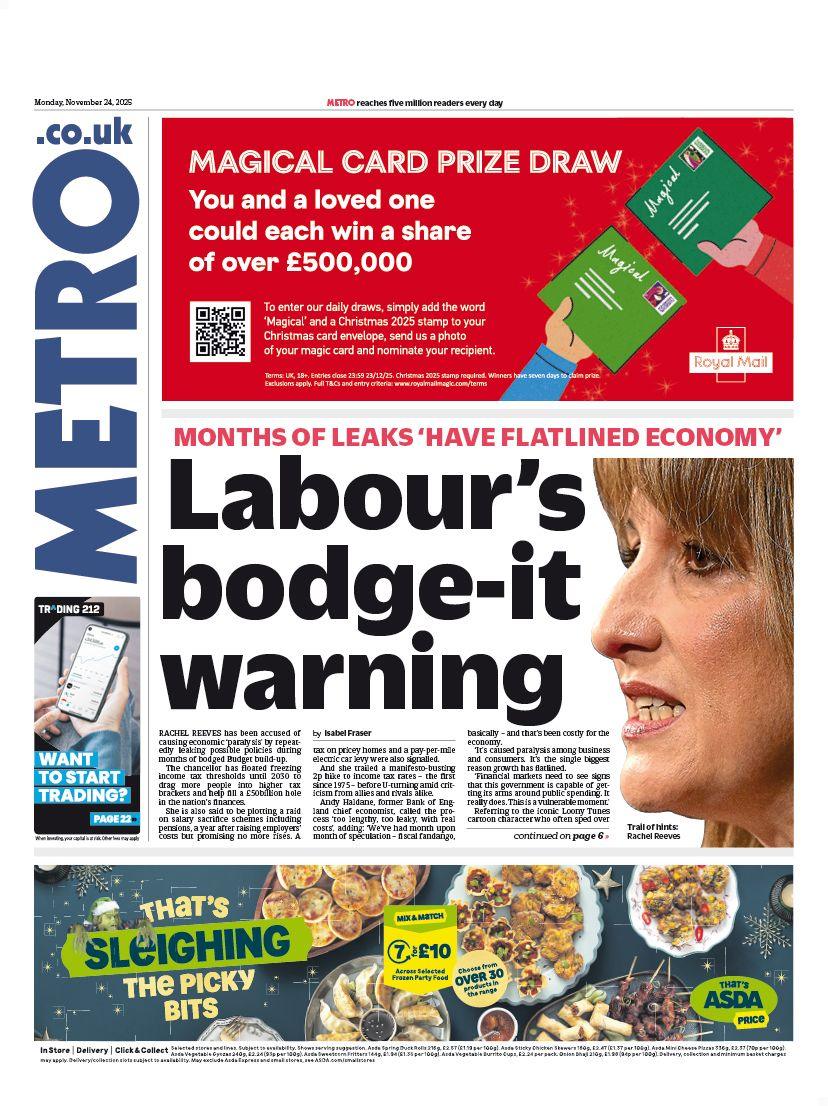
Budget week is upon us and many of Monday's papers focus on Chancellor Rachel Reeves's upcoming statement on Wednesday. The Metro writes that repeated leaks in the build-up to the Budget have damaged the economy. It quotes Bank of England chief economist Andy Haldane as saying there is "paralysis among businesses and consumers" due to a flurry of reports about its contents in recent weeks.
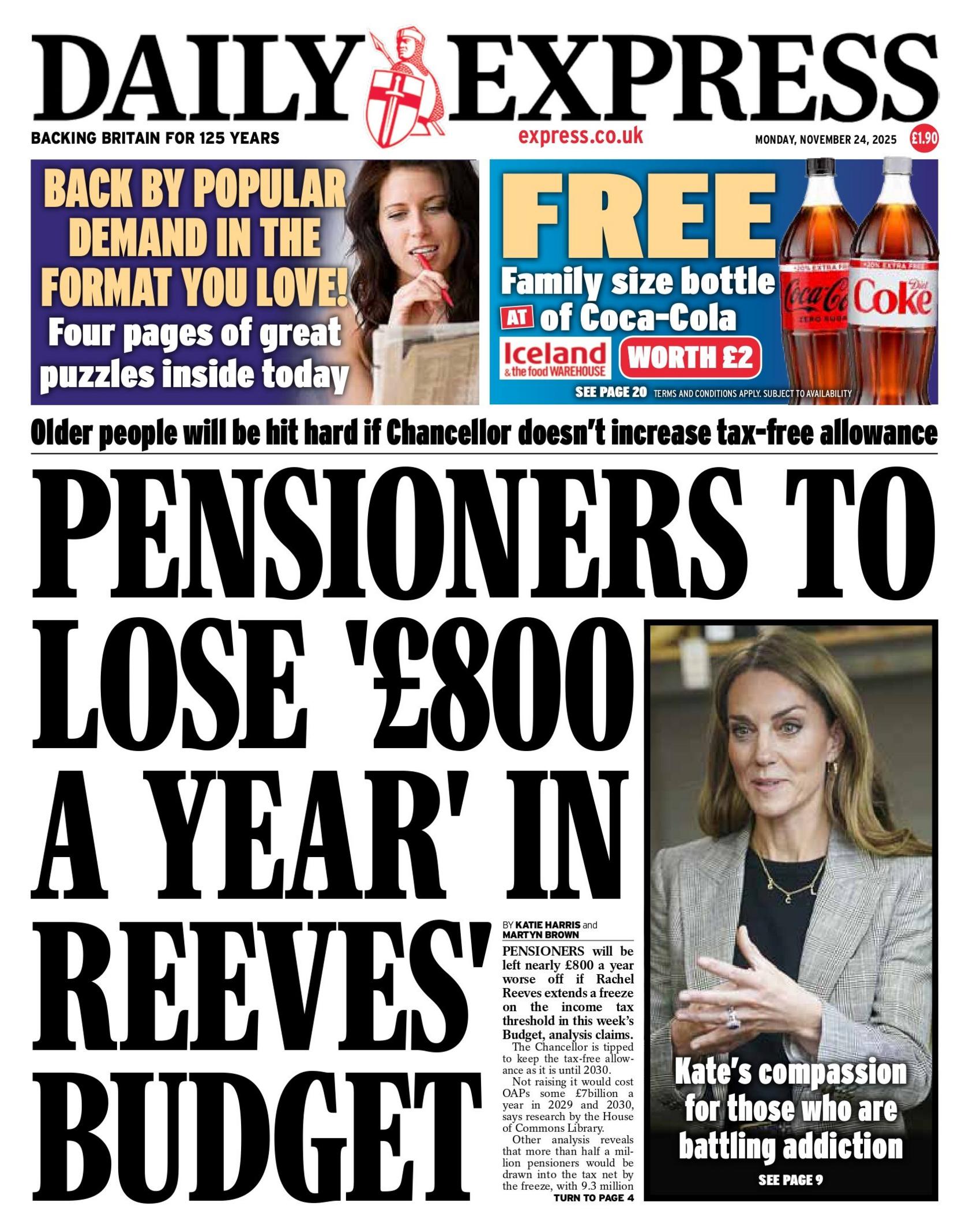
The Daily Express says pensioners will "lose £800 a year" if the Chancellor does not lift income tax thresholds. The paper reports that Reeves is expected to keep the tax-free allowance at its current level until 2030, extending a freeze first introduced by the previous Conservatives government and is due to expire in 2028. That would mean some people on state pensions being forecast to pay tax on part of their pension when the allowance increases as expected next year.
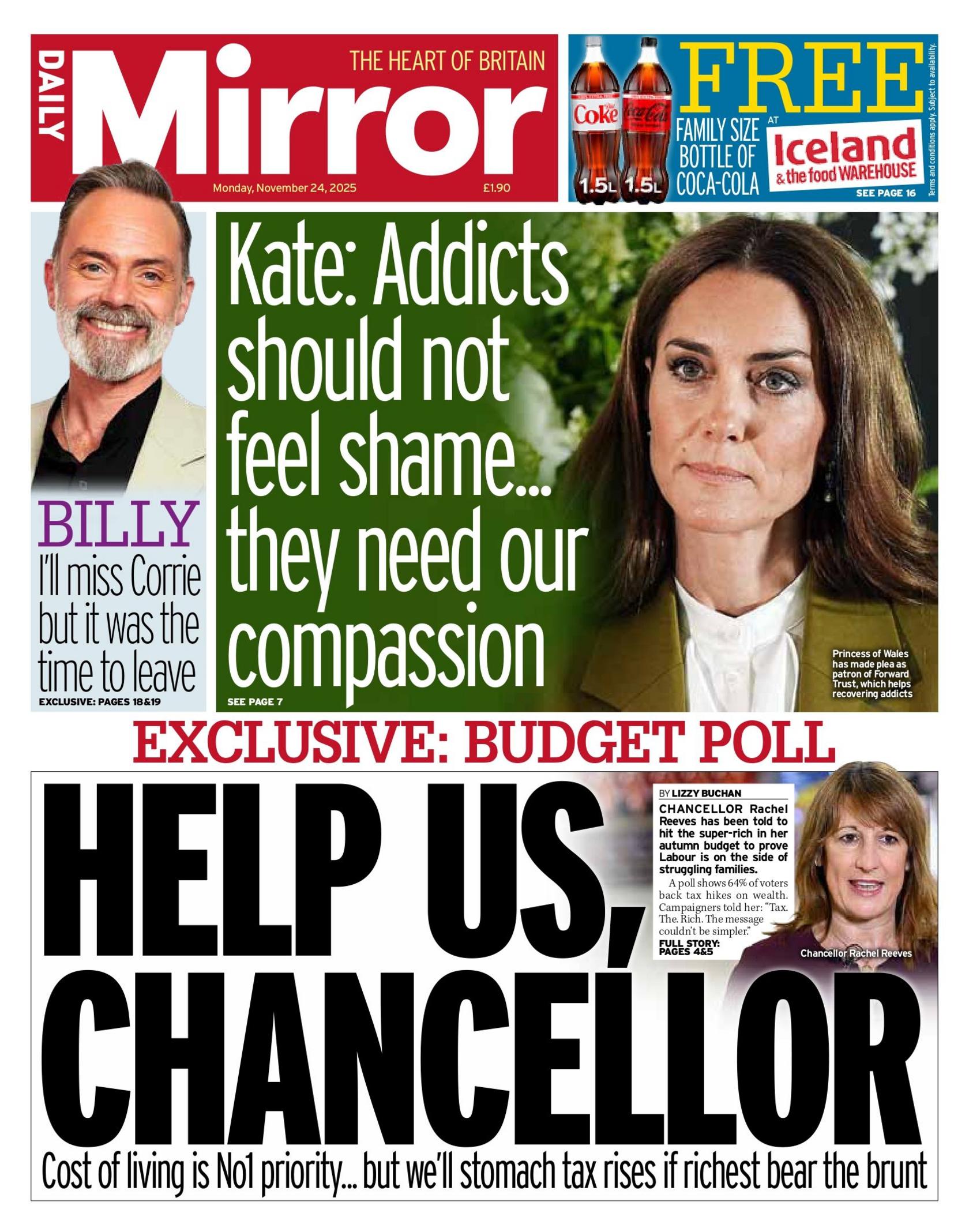
The Mirror leads with a poll suggesting some want Reeves to "hit the super-rich in her autumn budget". The Labour-supporting paper reports on a poll conducted by centre-left campaign group 38 Degrees, which indicates that "64% of voters back tax hikes on wealth".
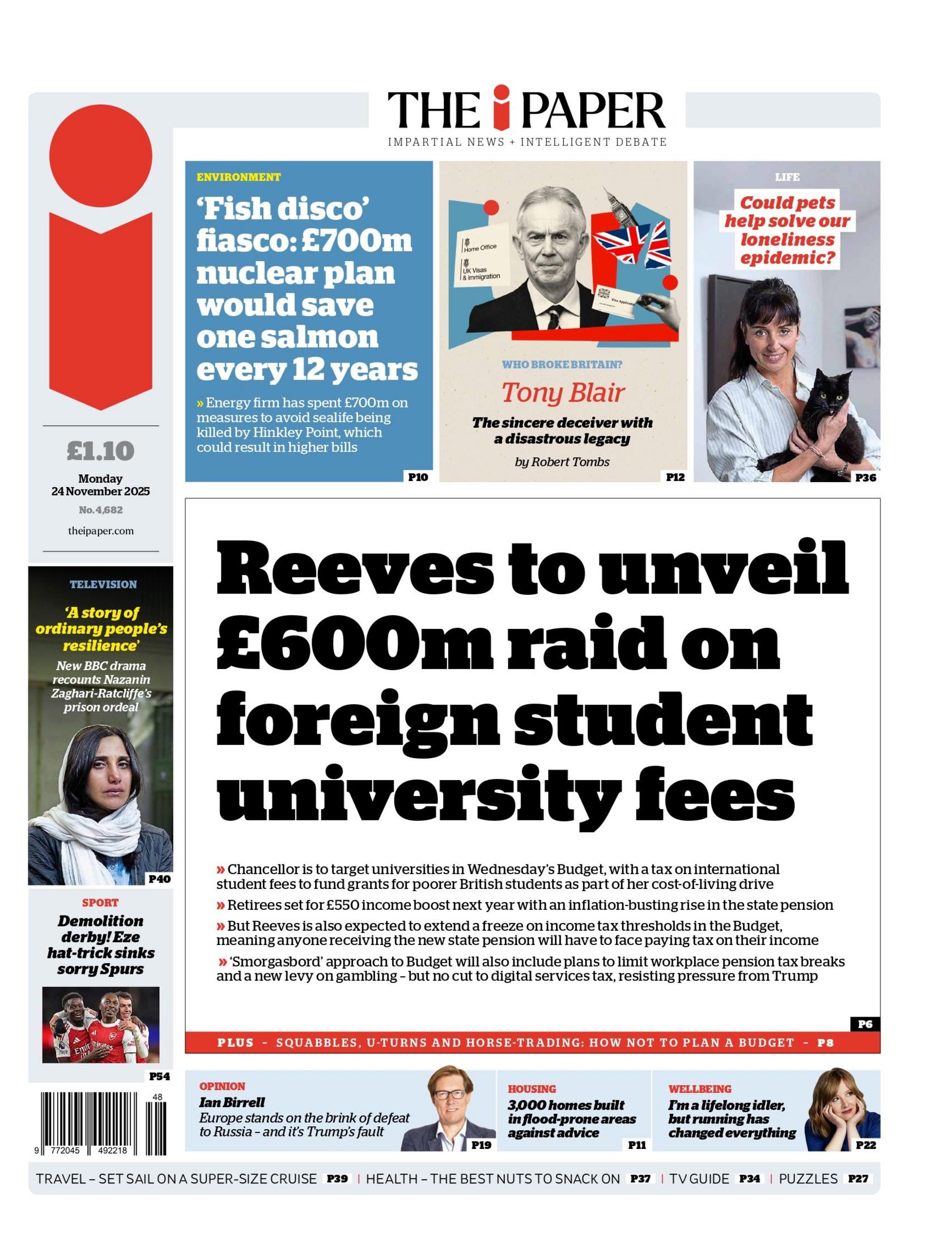
The Chancellor is "set to target universities" in the Budget according to the i Newspaper. Plans to raise international student fees to fund "grants for poorer British students" have been floated ahead of the statement, the paper says.
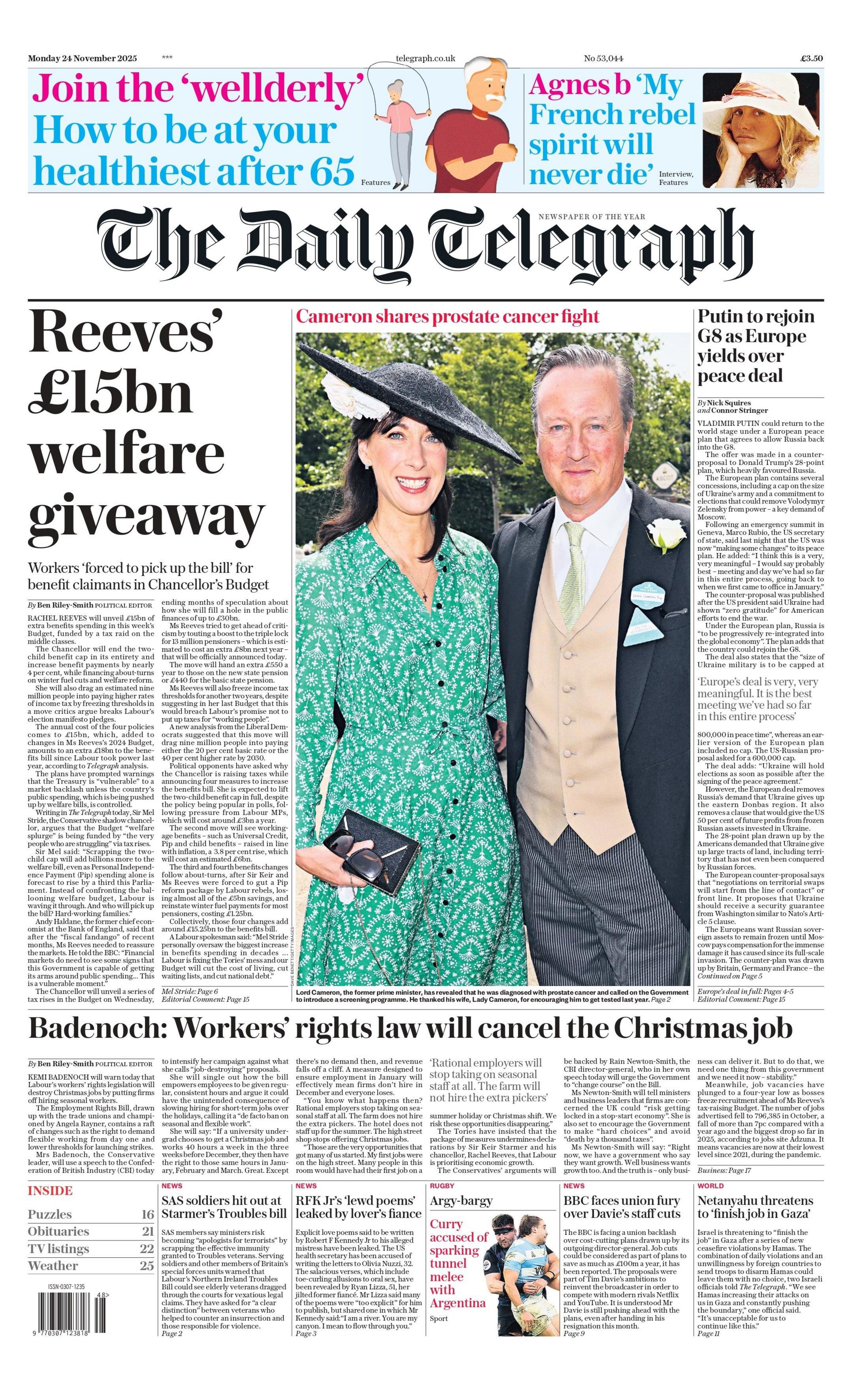
The Daily Telegraph says £15bn in extra welfare spending will be included in the Budget, which leads with reports Reeves plans to scrap the two-child benefit cap and confirm increases to other benefits and pensions. The proposals will be "funded by a tax raid on the middle classes", the paper reports, referring to an expected extensions to the thresholds freeze.
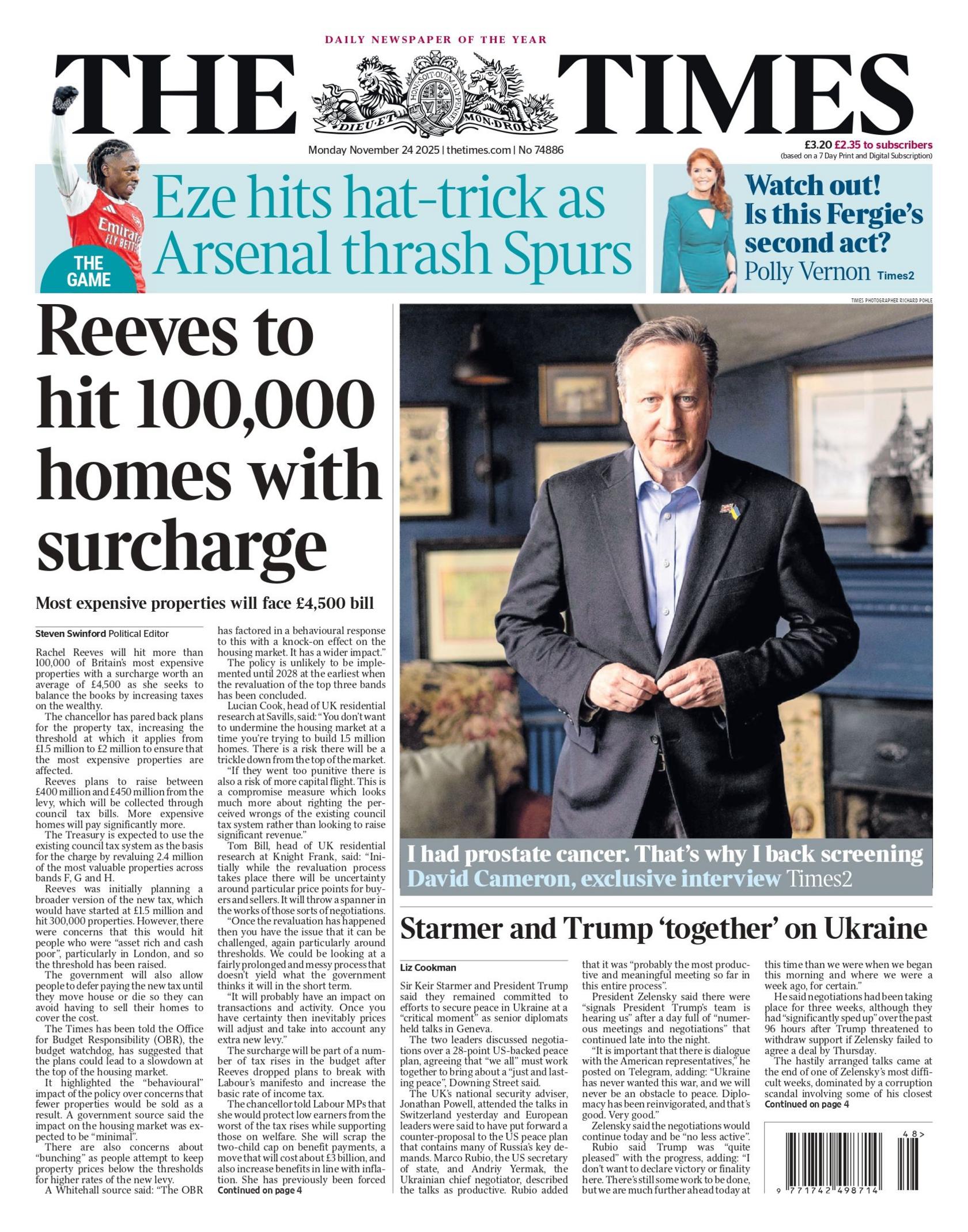
The Times reports that the chancellor plans to "hit more than 100,000 of Britain's most expensive properties with a surcharge worth an average of £4,500". The property tax was initially slated to apply to properties worth at least £1.5 million, but the Treasury is now looking at a £2 million threshold, according to the paper, due to concerns it could have impacted people who are "asset rich but cash poor".
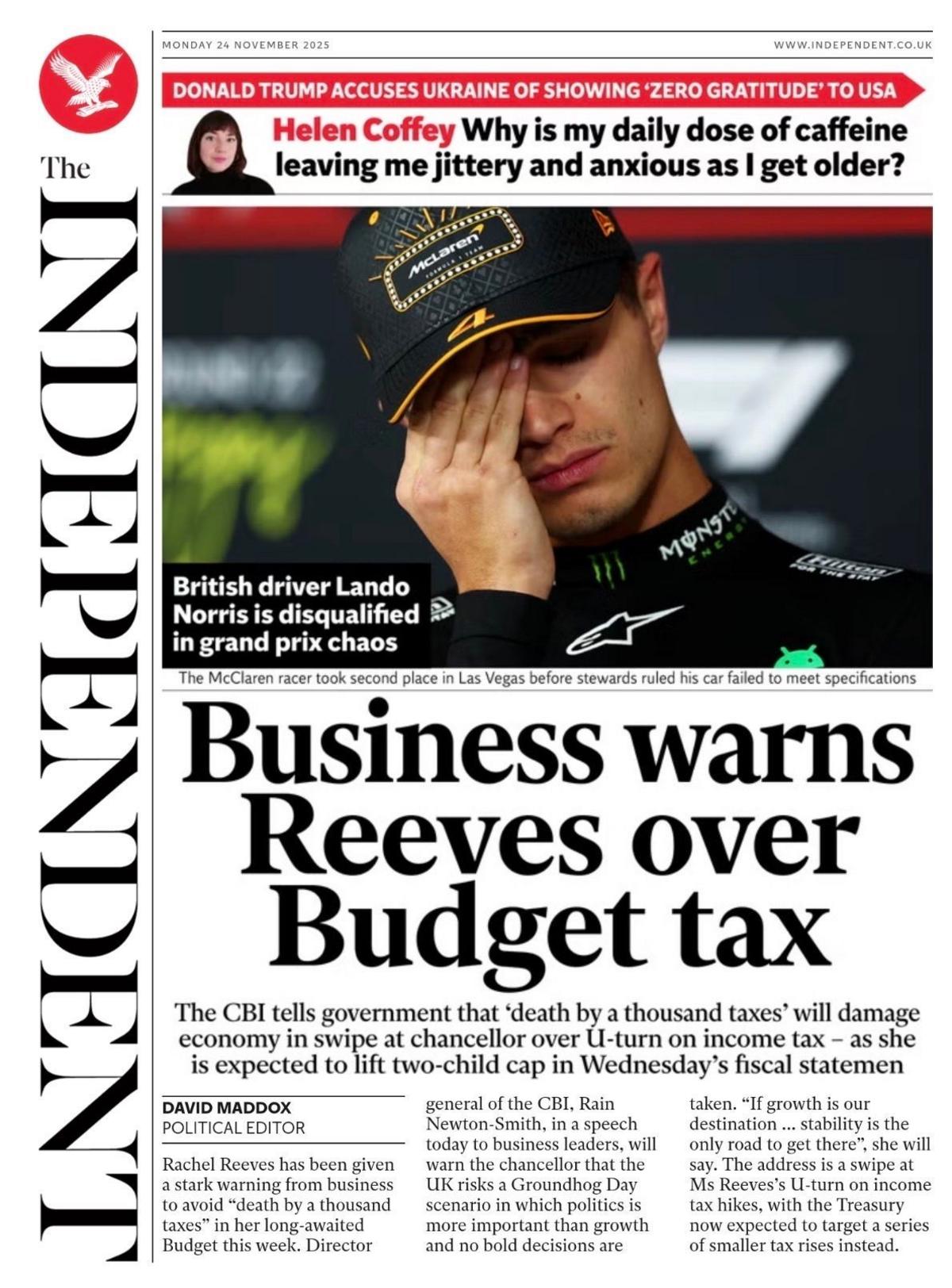
The Confederation of British Industry (CBI) says businesses face "death by a thousand taxes", the Independent reports. It refers to comments made by the group's director, Rain Newtown-Smith, who said the "UK risks a Groundhog Day scenario in which politics is more important than growth".
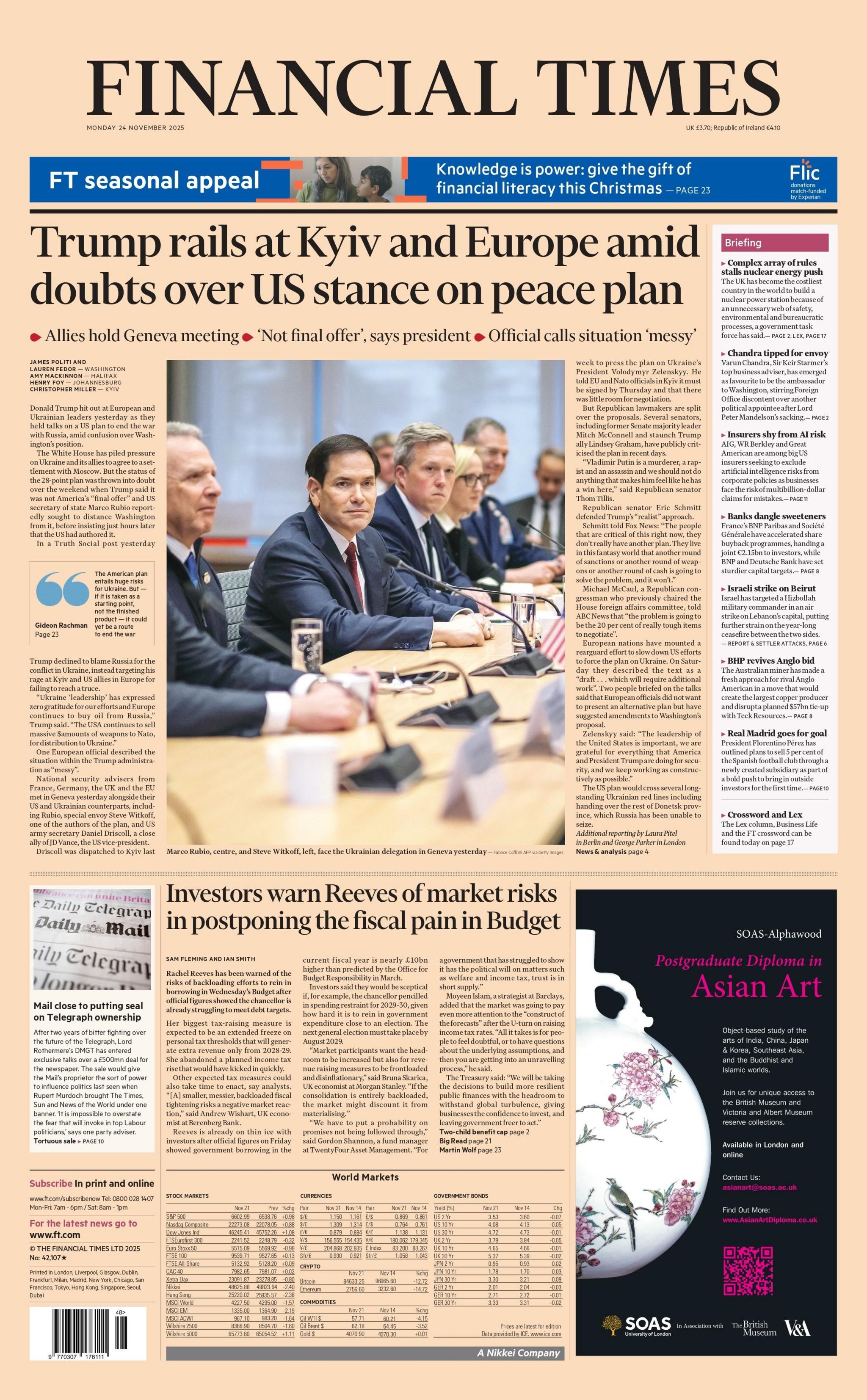
Meanwhile, the Financial Times leads with the latest on US efforts to mediate a deal between Ukraine and Russia to end the war. It focuses on comments by Donald Trump, who said Kyiv had shown "zero gratitude" to Washington. However, the White House later said the Geneva talks had been a success and there had been progress.
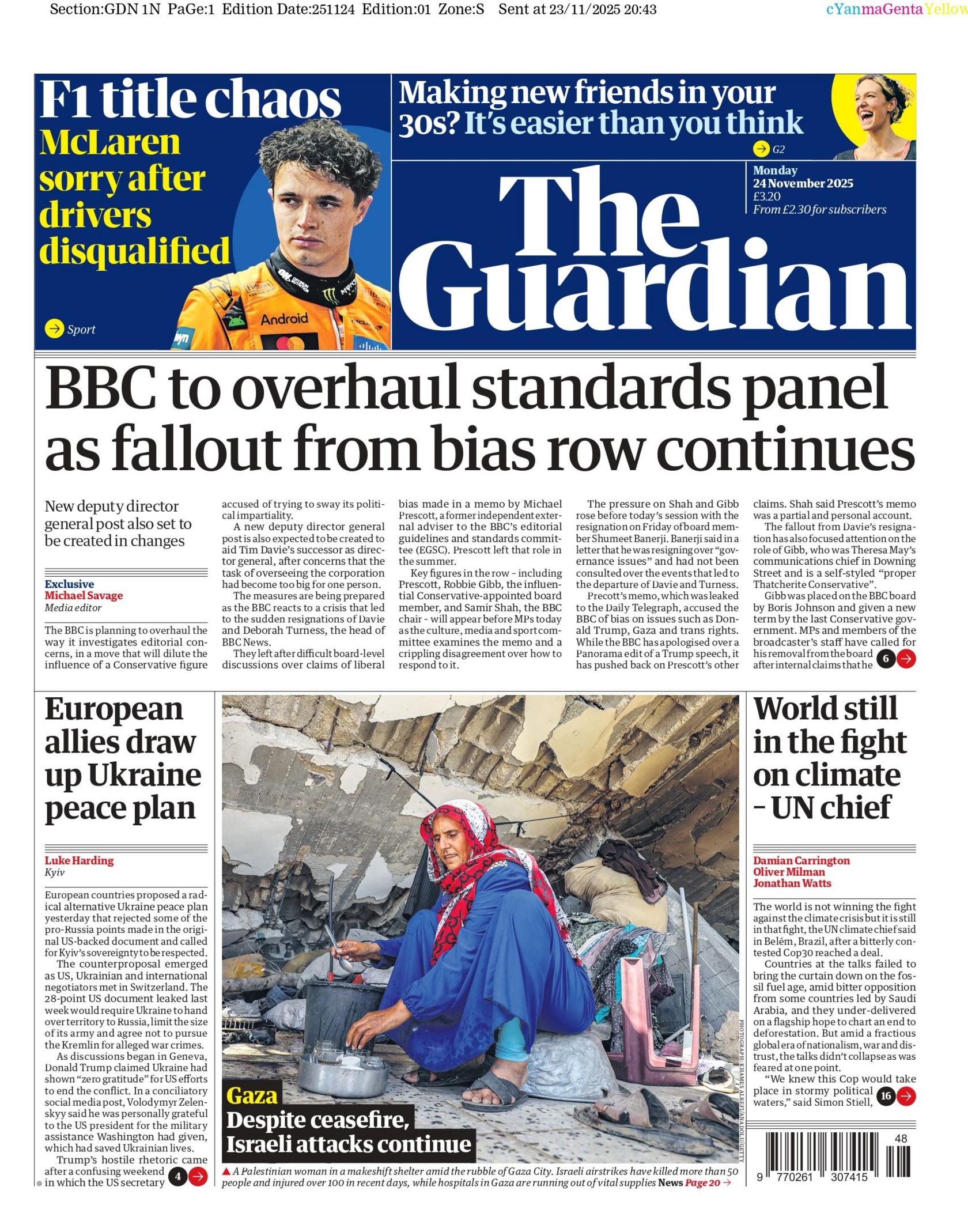
The Guardians claims the BBC is planning to "overhaul the way it investigates editorial concerns". It says the broadcaster will create a new deputy director general as part of its response to a row which saw two of its most senior leaders quit this month. The BBC has not commented on the Guardian's story.
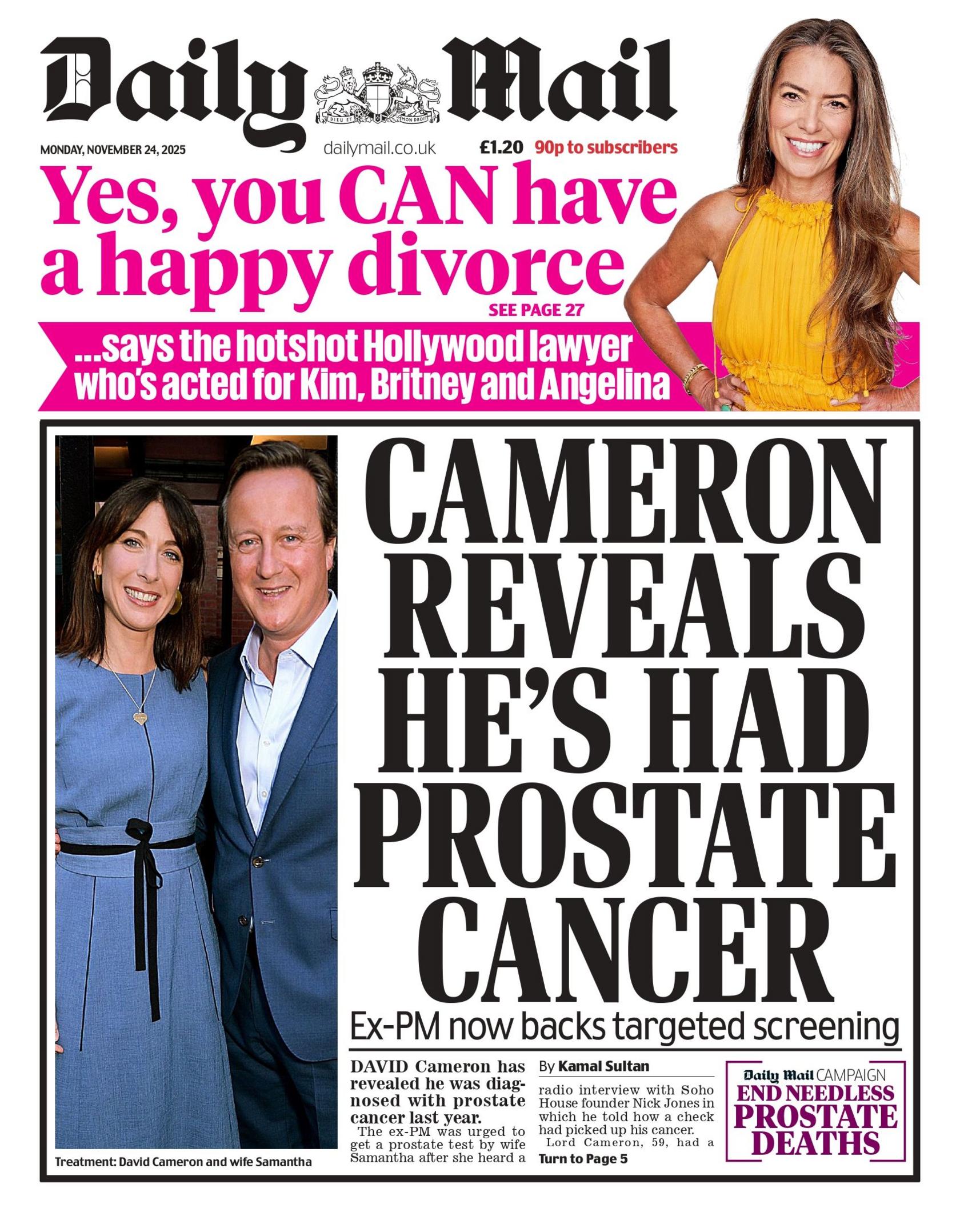
The Daily Mail leads on Lord David Cameron's revelation that he was diagnosed with and successfully treated for prostate cancer in 2022. The paper says the former prime minister was initially encouraged by his wife Samantha Cameron to get a prostate test after listening to a BBC radio interview. Lord Cameron now supports "targeted screening", the paper says.
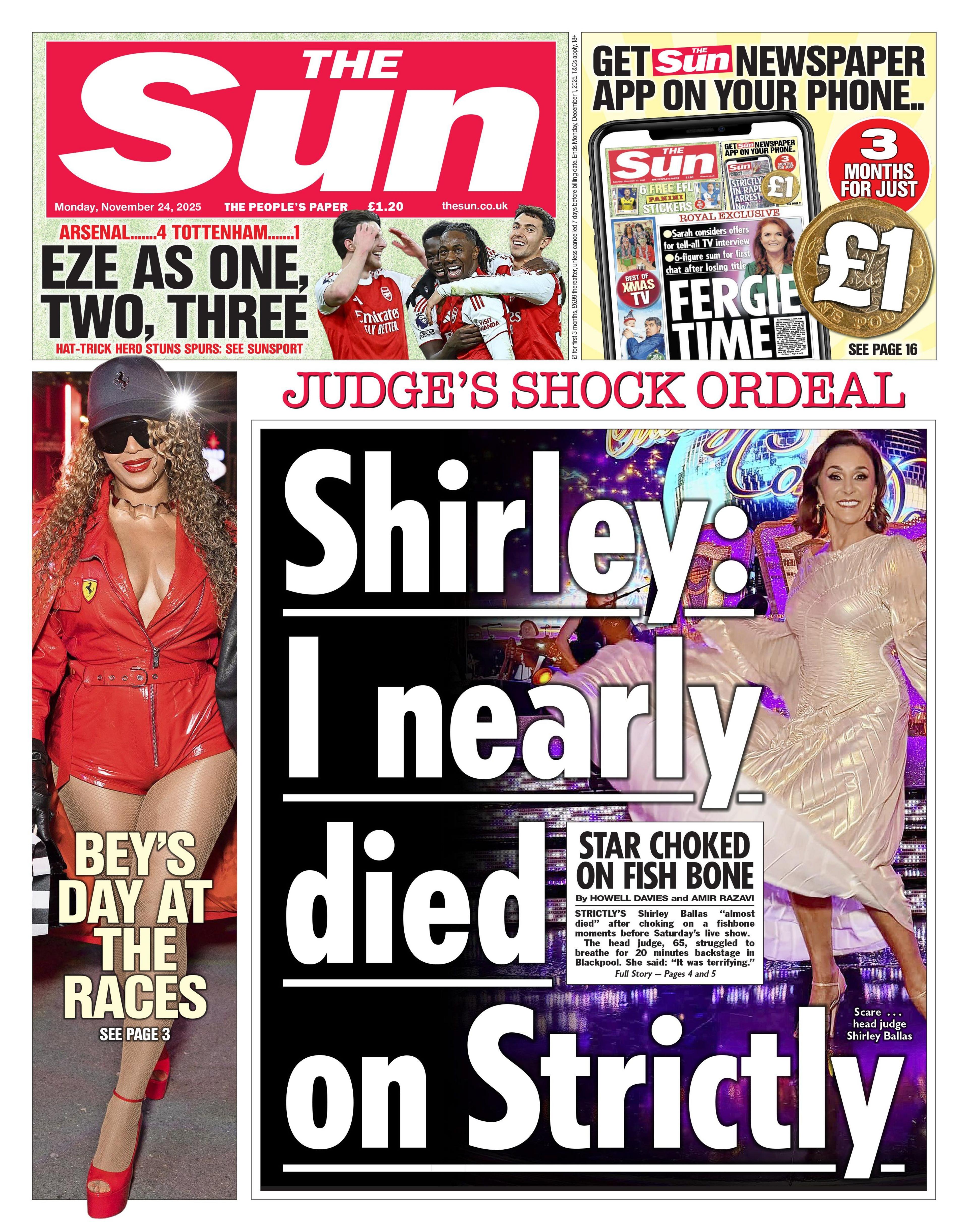
Strictly Come Dancing's Shirley Ballas "almost died" after choking on a fishbone moments before Saturday's live show, the Sun reports. The paper says the 65-year-old "struggled to breathe for 20 minutes backstage in Blackpool".

And finally, the Daily Star continues its campaign for viewers to get behind former model Kelly Brooks on I'm a Celebrity... Get Me Out of Here.

Sign up for our morning newsletter and get BBC News in your inbox.
